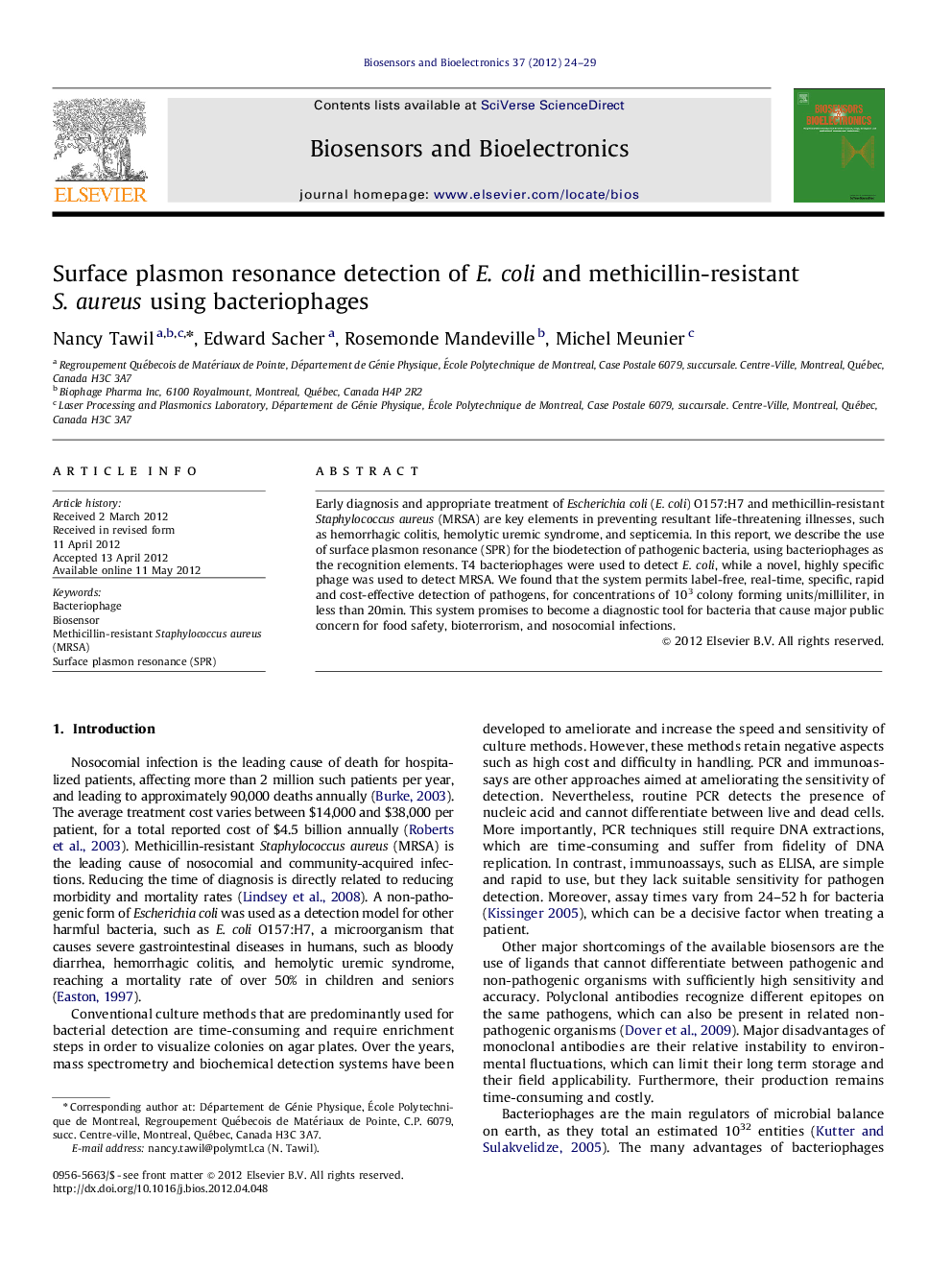| کد مقاله | کد نشریه | سال انتشار | مقاله انگلیسی | نسخه تمام متن |
|---|---|---|---|---|
| 867334 | 909781 | 2012 | 6 صفحه PDF | دانلود رایگان |

Early diagnosis and appropriate treatment of Escherichia coli (E. coli) O157:H7 and methicillin-resistant Staphylococcus aureus (MRSA) are key elements in preventing resultant life-threatening illnesses, such as hemorrhagic colitis, hemolytic uremic syndrome, and septicemia. In this report, we describe the use of surface plasmon resonance (SPR) for the biodetection of pathogenic bacteria, using bacteriophages as the recognition elements. T4 bacteriophages were used to detect E. coli, while a novel, highly specific phage was used to detect MRSA. We found that the system permits label-free, real-time, specific, rapid and cost-effective detection of pathogens, for concentrations of 103 colony forming units/milliliter, in less than 20min. This system promises to become a diagnostic tool for bacteria that cause major public concern for food safety, bioterrorism, and nosocomial infections.
► MRSA is the leading cause of nosocomial infections and needs to be detected quickly.
► Antibodies are unstable to environmental fluctuations, costly to produce and cannot distinguish live from death cells.
► A cost effective, robust and easy to produce MRSA-specific phage is isolated.
► An SPR system permits label-free, real-time, specific, rapid and cost-effective detection of pathogens.
► Concentrations as low as 103 colony forming units/milliliter of pathogens are detected in less than 20 min.
Journal: Biosensors and Bioelectronics - Volume 37, Issue 1, August–September 2012, Pages 24–29